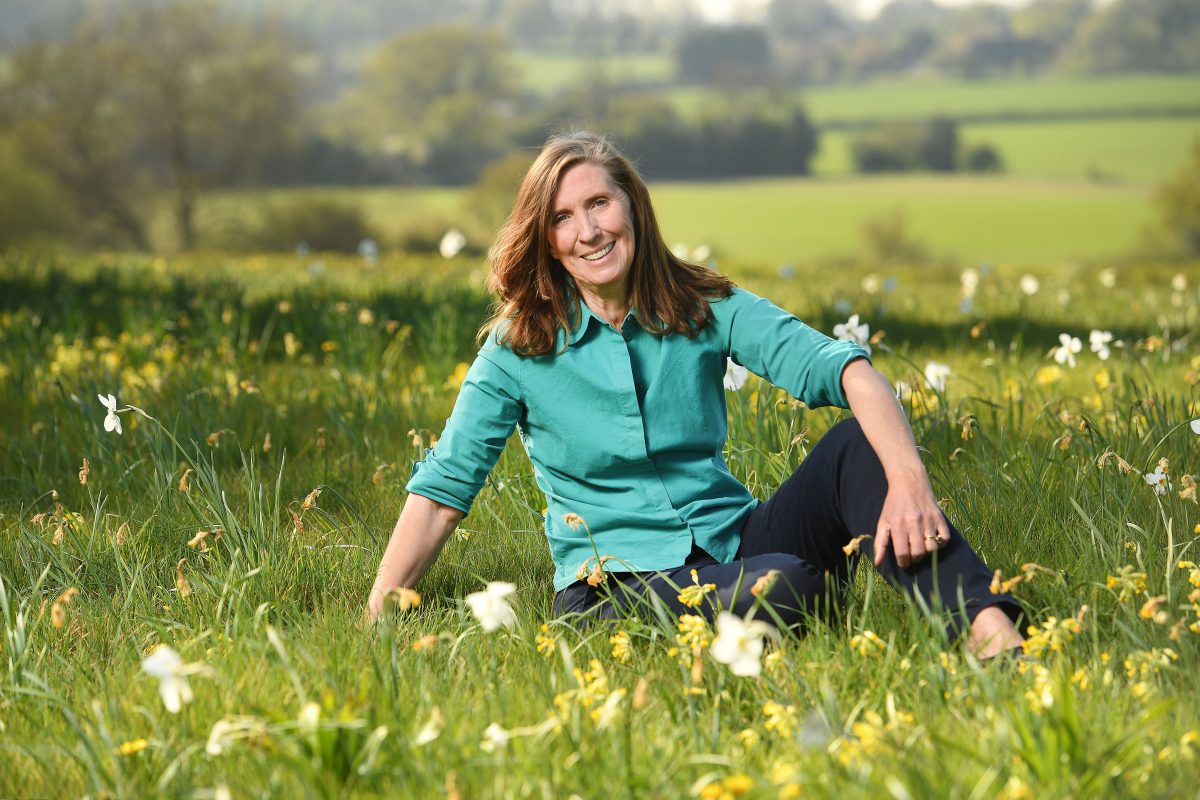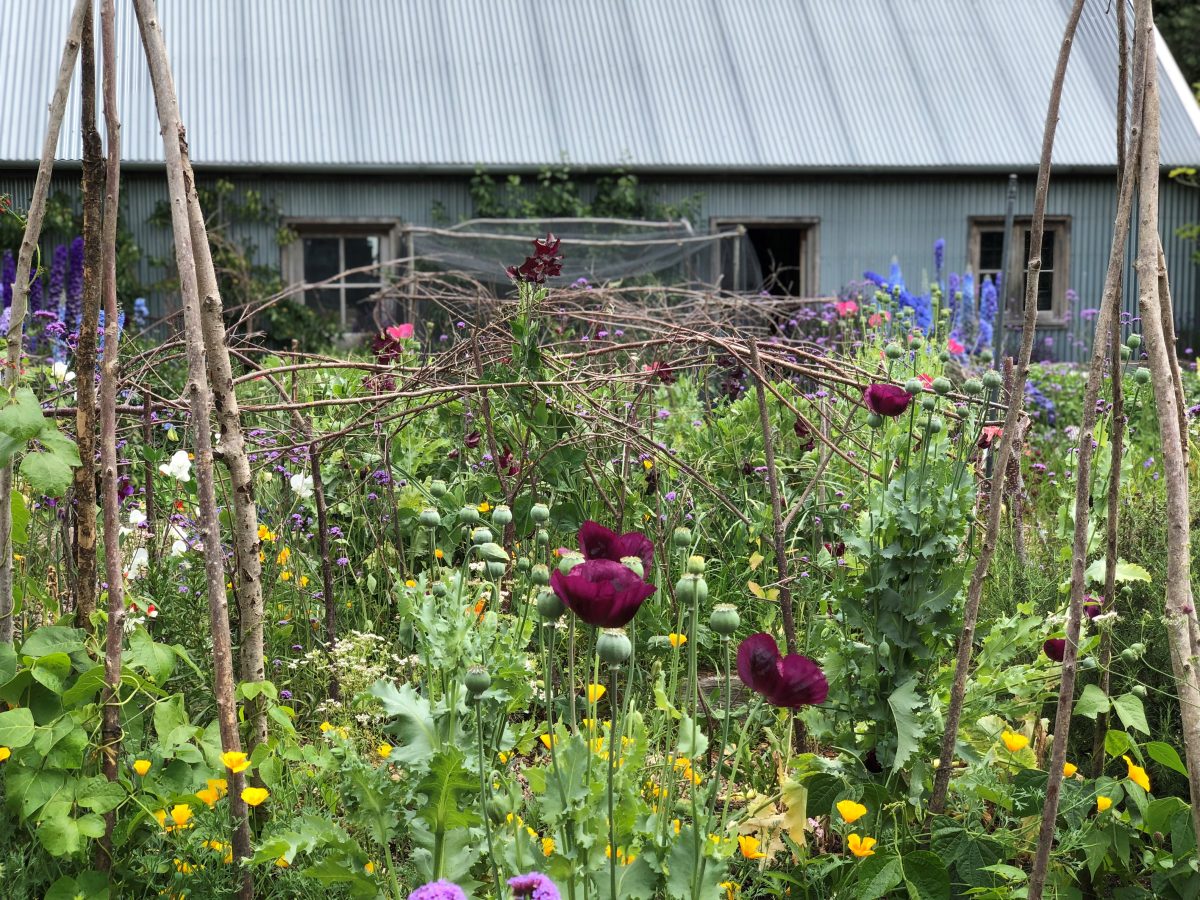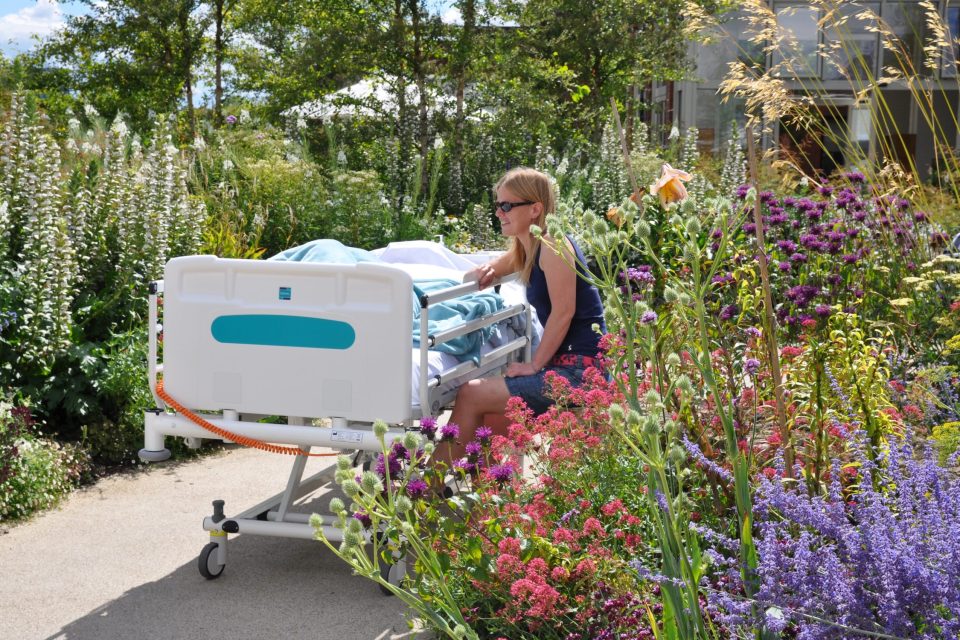
Dr Sue Stuart-Smith combines gardening and mental health. Photo: Russell Sach.
It’s a truism that gardening is good for you, combining exercise, creativity and connection with the earth.
But when psychiatrist and psychotherapist Dr Sue Stuart-Smith discovered the story of how her grandfather was healed by growing orchids, she had to know more.
The result was The Well Gardened Mind, a book about the connection between gardening and mental health, attachment to place and the pride that comes from creating beauty, food and sustainability.
Sue will be in Canberra at the National Film and Sound Archive on 29 February for the Land Escapism event. She’ll also visit Tumut, where she first connected with bushfire survivors after the Black Summer, sending care packages of seeds, gardening tools and her book.
Her gardening journey began when she and her husband Tom, now an internationally renowned garden designer, and their very young family moved back to his family’s land in Hertfordshire. Sue, a busy doctor and mother, initially regarded gardening as outdoor housework.
But as their garden at The Barn grew and her own career became busier and busier, things changed.
“I wanted a little patch of my own for culinary and medicinal herbs, then I realised I want to start growing vegetables too,” she said.
“I got very excited by that, seeing the dramatic transformation you get with vegetables. I mean, a pumpkin is probably the most extreme example of nature’s powers of transformation!
“A garden is by definition a cared-for space, the plants you grow are nurtured by you. The actual work of creation, the transformation, is nature’s but you help that along.
“With vegetables, you’re nurturing your family too and in the course of that, I came to see it as not so much an activity one does but a relationship you are forming. That was a revelation for me: this is an ongoing relationship with the garden, a form of dialogue between me and nature.”

The Barn vegetable garden in midsummer. Photo: Sue Stuart-Smith.
Sue and Tom hosted a literary festival at The Barn in 2013 and when the museum director suggested Sue could discuss mental health and gardening, another journey began.
“I realised how much below the surface these two different worlds – my medical career and my home and family – which felt so separate, had actually been percolating and twining together.
“You could understand that through attachment, a very important concept in psychology, and I began thinking about my grandfather Ted.”
He was a submariner, captured off Gallipoli in 1915 and held as a prisoner of war. When he arrived home after the war, Sue’s grandmother didn’t recognise the emaciated man standing in front of her in an old overcoat and a Turkish fez.
Ted was enrolled in a horticultural training course on what had once been a large and beautiful estate garden on the River Humber, with glasshouses heated for exotics.
“Gardening saved his life, gave him back his life,” Sue says of the gentle man she remembers with his own orchid collection and smallholding. The sense of pace, productivity, safety and beauty had healed terrible scars.
Her research on the link between gardening and mental health has taken her everywhere from Rikers Island prison in New York – where a prisoner told her it was a life-changing revelation that he could actually grow his own food – to the Incredible Edible movement in Manchester.





After the 2008 financial crash left the local economy in tatters, a group of women began guerilla gardening, planting vegetables in empty plots including a disused health centre, with an invitation to people to help themselves.
Fifteen years later, a foodie destination has emerged, with fortnightly community gardening.
In their own garden at Serge Hill, Sue and Tom are launching a project with nearby schools and their local youth counselling service to teach children simple gardening and food-growing skills.
“Gardening can be very empowering, to know I could sustain myself. I’m not talking about being completely self-sufficient but at an existential level it’s quite reassuring,” Sue says.
“And I think it’s more important than ever in terms of the future to understand how nature works, how composting and natural recycling takes place. We all need to know there is another way.”
Sue Stuart-Smith will be part of the Land Escapism event at the National Film and Sound Archive on Thursday, 29 February, joining speakers including Adj Professor Margot Neale, director of The Heart Garden Project Emma Cutting, rewinding expert Charlie Harpur and Cooma garden writer and photographer Trisha Dixon. Bookings can be made from the website.












